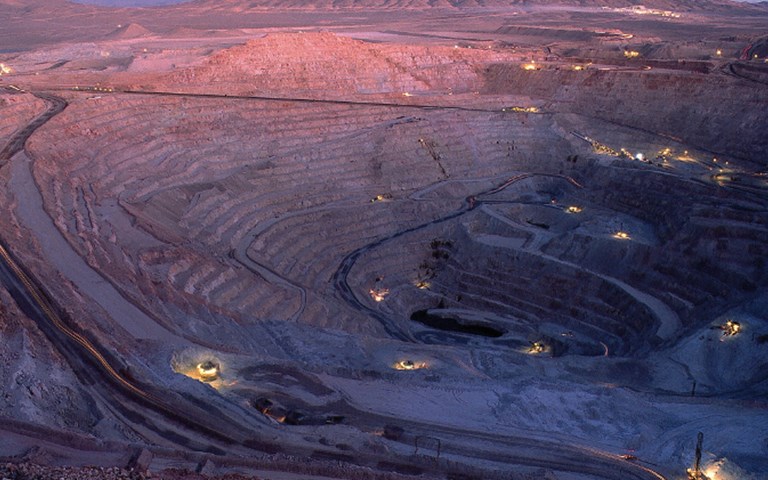Last year Escondida workers at the mine went on strike for 44 days, which reduced the operation’s annual output by 7.8 per cent and significantly disrupted copper markets. Courtesy of BHP
Workers at BHP’s Escondida copper mine in Chile will go on strike on August 6 if the company does not improve its contract offer.
Escondida’s union voted 1,955 to 370 in favour of rejecting BHP’s final offer of a US$18,000 signing bonus for each worker and a 1.5 per cent salary bump with plans to increase with inflation.
The union was requesting a bonus of US$34,000 and a five per cent increase in wages.
“If we don’t see a change in attitude on the part of the company by Monday, August 6, we will conclude that it doesn’t make sense to extend the talks,” union head Patricio Tapia said at a press conference, according to Reuters.
Escondida, located in the northern part of Chile’s Atacama Desert, produces 1.1 million tonnes of copper annually and is the largest copper producer in the world. Last year workers at the mine went on strike for 44 days, which reduced the operation’s annual output by 7.8 per cent and significantly disrupted copper markets.
Chile’s labour law allows for both parties to call for government mediation, which could hold off a strike for between five and ten days. Tapia said the union will not ask for mediation, but BHP has not acknowledged whether it will.
Related: Brewing strikes at two Chilean mines could impact price of copper
In a statement provided to CIM Magazine, BHP said its offer was still valid until August 5, and represented “the best collective contract in the country’s private mining industry.”
The company said it is reviewing its contingency plans to minimize the impact of the potential strike.
“A strike at Escondida would have very negative effects for our workers and their families, the company, the region and the country,” said Patricio Vilaplana, vice-president of corporate affairs at BHP subsidiary Minera Escondida. “With a strike, we would all lose. That was the experience we had in 2017 and I think no one would want to repeat it.”
Earlier this week, workers at Codelco’s Chuquicamata copper mine in the Antofagasta region, also began striking to protest two employees’ “unjustified layoff.” Chuquicamata has been facing the threat of labour disruption since Codelco announced plans to transition the mine’s existing open pit to an underground mine, which would cut up to 1,700 jobs.
Escondida and Chuquicamata collectively account for roughly seven per cent of worldwide copper production, and 25 per cent of Chile’s copper output.



